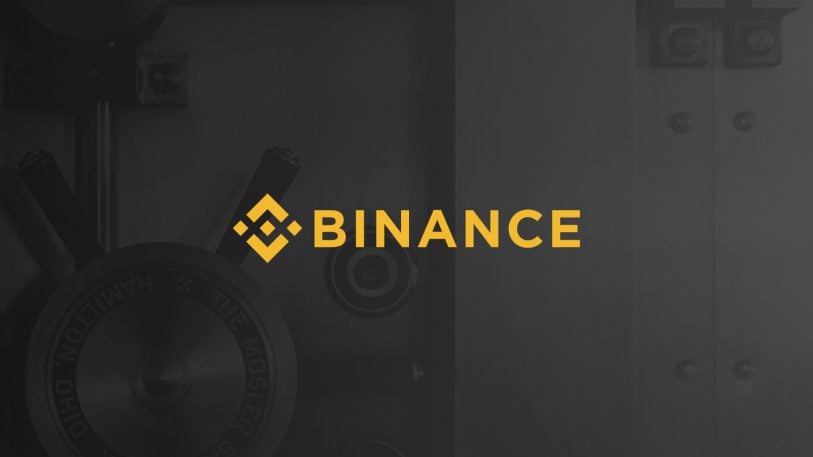Major Crypto Legislation Successfully Passes U.S. Congress; Binance Withdraws License Application in Germany; KuCoin Denies Layoff Allegations.
On July 26, a momentous day for the cryptocurrency industry, two significant bills were approved by an overwhelming majority in the United States Congress, signifying a major step forward for the sector.
The first bill, known as the “Financial Innovation and Technology for the 21st Century Act,” achieved a favorable 35-15 vote in the House of Representatives Financial Services Committee. This legislation is aimed at establishing clear regulatory guidelines for crypto companies when registering with either the Commodity Futures Trading Commission (CFTC) or the Securities and Exchange Commission (SEC).
Among its key provisions, the bill requires companies to adhere to specific reporting processes to the SEC, certifying the degree of decentralization in their projects. Additionally, it mandates the registration of digital assets as digital commodities with the CFTC.
The successful passage of this bill has garnered bipartisan support, as noted by Republican Congressman French Hill, who expressed his pride in seeing the legislation overcome its initial hurdles.
The second milestone achievement of the day was the bipartisan “Blockchain Regulatory Certainty Act,” jointly championed by Republican Congressman Tom Emmer and Democratic Congressman Darren Soto. The primary objective of this act is to streamline the regulatory landscape for blockchain developers and service providers, such as miners, multi-signature service providers, and decentralized finance platforms.
Congressman Emmer emphasized the importance of this act as a significant win for the United States, as it endeavors to foster an environment that encourages innovation and growth in the blockchain sector. The act aims to alleviate challenges and burdens faced by developers and service providers, offering clearer guidelines for their operations.
However, it is crucial to note that the “Blockchain Regulatory Certainty Act” addresses a specific concern related to the qualification of blockchain-related assets as money transfer agents in the U.S. If the bill successfully passes through the House of Representatives, it would provide the blockchain community with confirmation that withholding client funds is a prerequisite for being categorized as a money transmitter.
Both bills represent substantial progress for the cryptocurrency industry, providing much-needed clarity and regulatory certainty for companies operating in this rapidly evolving space. The successful bipartisan support for these bills indicates a growing recognition among lawmakers of the significance of blockchain technology and its potential to drive economic growth and innovation in the United States. As these bills move forward, the nation takes a stride towards becoming a leader in the global crypto landscape.

Binance Withdraws License Application in Germany!
Binance has withdrawn its license application in Germany after the German Federal Financial Supervisory Authority (BaFin) issued a report nearly a month ago suggesting that the exchange’s license could be rejected. Now, Binance has decided to withdraw its application to operate in Germany.
In early June, Binance faced legal action from the U.S. Securities and Exchange Commission (SEC). Following regulatory scrutiny in the United States, the exchange came under investigation in some European Union countries as well. Now, after operating in the UK and the Netherlands, Binance has announced the withdrawal of its license application for the German market.
Binance Withdraws its Application in Germany
It was reported that BaFin rejected Binance’s crypto exchange license on June 29. However, at that time, it was unclear whether the exchange’s application had been formally rejected or if Binance had been verbally informed about the decision. Nonetheless, Binance has now confirmed that it is withdrawing its license application.
Binance CEO Changpeng Zhao stated that the exchange will focus on aligning its services with the markets governed by the Markets in Crypto-Assets (MiCA) regulations to continue operating in European countries. Nevertheless, due to regulatory issues in the United States, the company’s expansion plans in Europe have experienced a setback.


KuCoin Denies Layoff Allegations
Cryptocurrency exchange KuCoin has refuted claims of employee layoffs. Just days ago, there were speculations that the exchange would terminate 30% of its workforce in the coming weeks. However, KuCoin has responded to the circulating speculations.
A spokesperson for KuCoin clarified that there is no plan to initiate any layoffs. Additionally, the spokesperson stated that any potential terminations would be part of a broader plan aimed at enhancing the company’s operations.
As part of normal organizational development and the six-month employee performance evaluation process, some personnel changes may be necessary.
Kucoin CEO, Johnny Lyu, addressed the layoff rumors in a tweet dated July 25, assuring the crypto exchange’s continued smooth operations.
No Layoff Plan for KuCoin’s Staff
Previously, independent journalist Wu Blockchain had shared a piece of news claiming that KuCoin was set to lay off 30% of its workforce due to strict Know Your Customer policies in the United States, leading to a decline in the exchange’s profits.
KuCoin responded with a denial to Wu Blockchain’s allegations, and subsequently, the journalist withdrew the claims.
KuCoin has not disclosed the percentage of staff to be laid off or which positions will be affected.
According to the exchange, it currently employs around 1,000 people worldwide, and CEO Lyu asserts that this number is steadily increasing.
However, the cryptocurrency market’s downturn throughout 2022 has forced many leading exchanges such as Binance, Coinbase, and Kraken to significantly reduce their workforce.
Notably, Binance laid off over 1,000 employees since May. Coinbase bid farewell to 20% of its workforce in June and previously executed another 20% layoff in January. Kraken also had to terminate the employment of 1,100 workers during similar periods.



